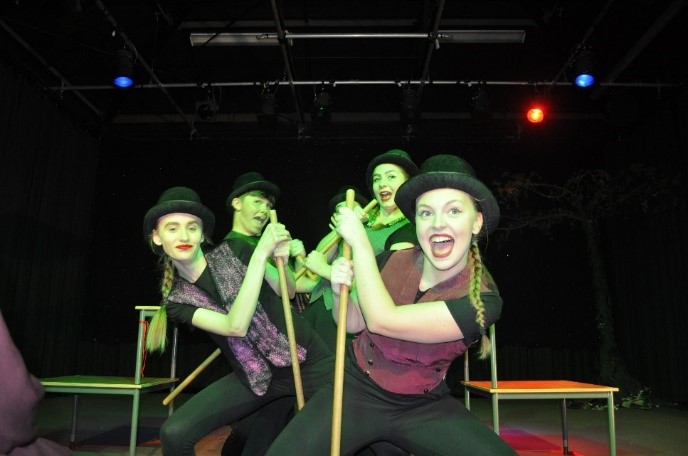A Level Drama & Theatre
“Drama is life with the dull bits cut out” Alfred Hitchcock
A-level Drama and Theatre helps students to pursue their interests and skills in a range of practical drama elements including acting, directing and technical design. This course is for students who enjoy reading, watching and taking part in plays, whether performing, directing or designing sets and costumes. It provides a pathway for students to be at the centre of the creative process, creating original and innovative work, as well as developing a wide range of skills and their subject knowledge.
It is a definite advantage, though not essential, to have completed GCSE Drama before embarking on the A-level course. Please note that there is considerable emphasis on written work in this course; the written elements within both practical and exam components constitute a large percentage of your final mark.
Drama and Theatre A-level combines well with most other A-level subjects, either as a complementary or as a contrasting option. Drama and Theatre is, of course, ideal for students who wish to pursue Drama and other arts-based subjects at university but is also useful for a wide range of areas that require interpersonal and communication skills. Our past students are working in a wide range of areas from theatre, TV and film to law, marketing, personal relations, and education.



